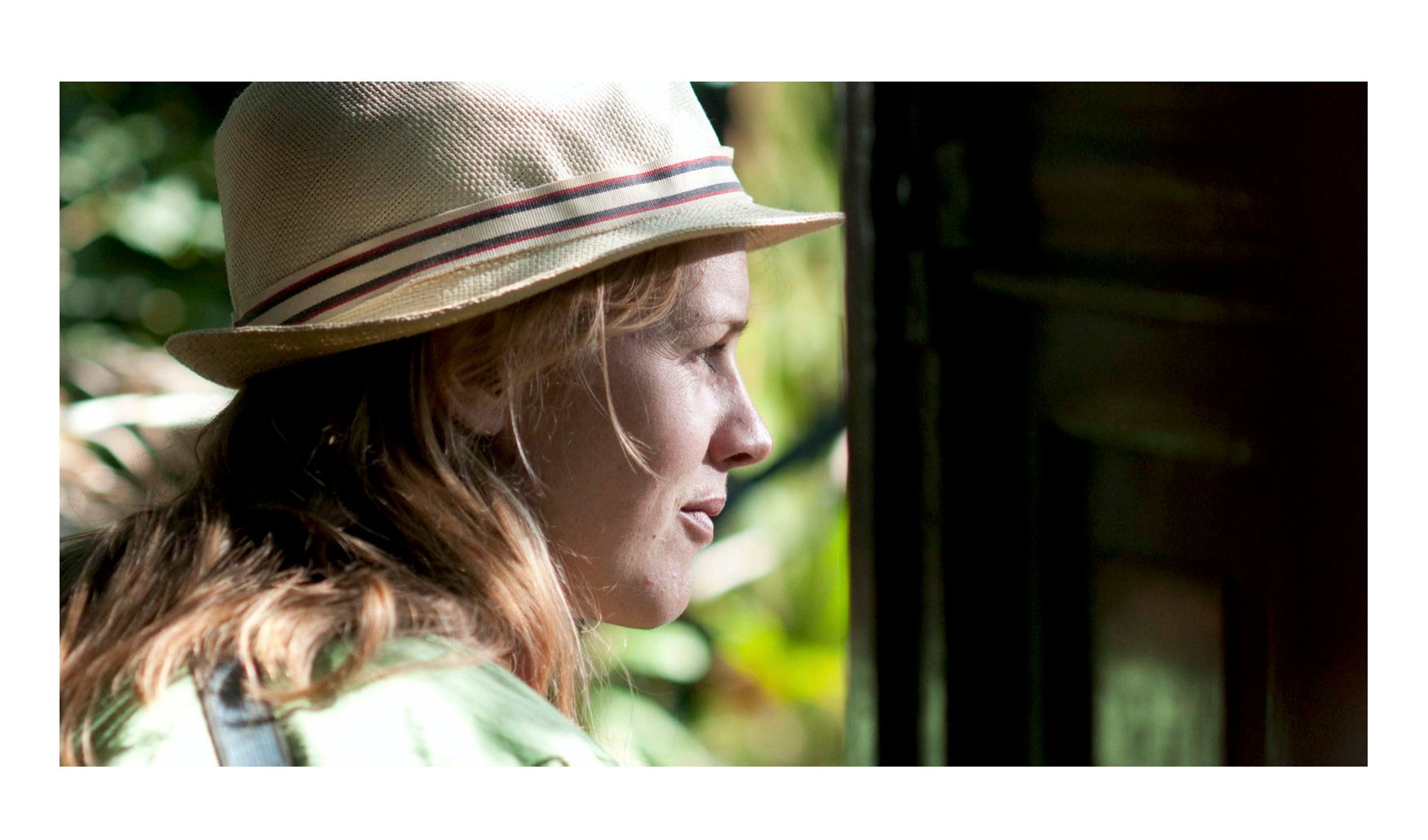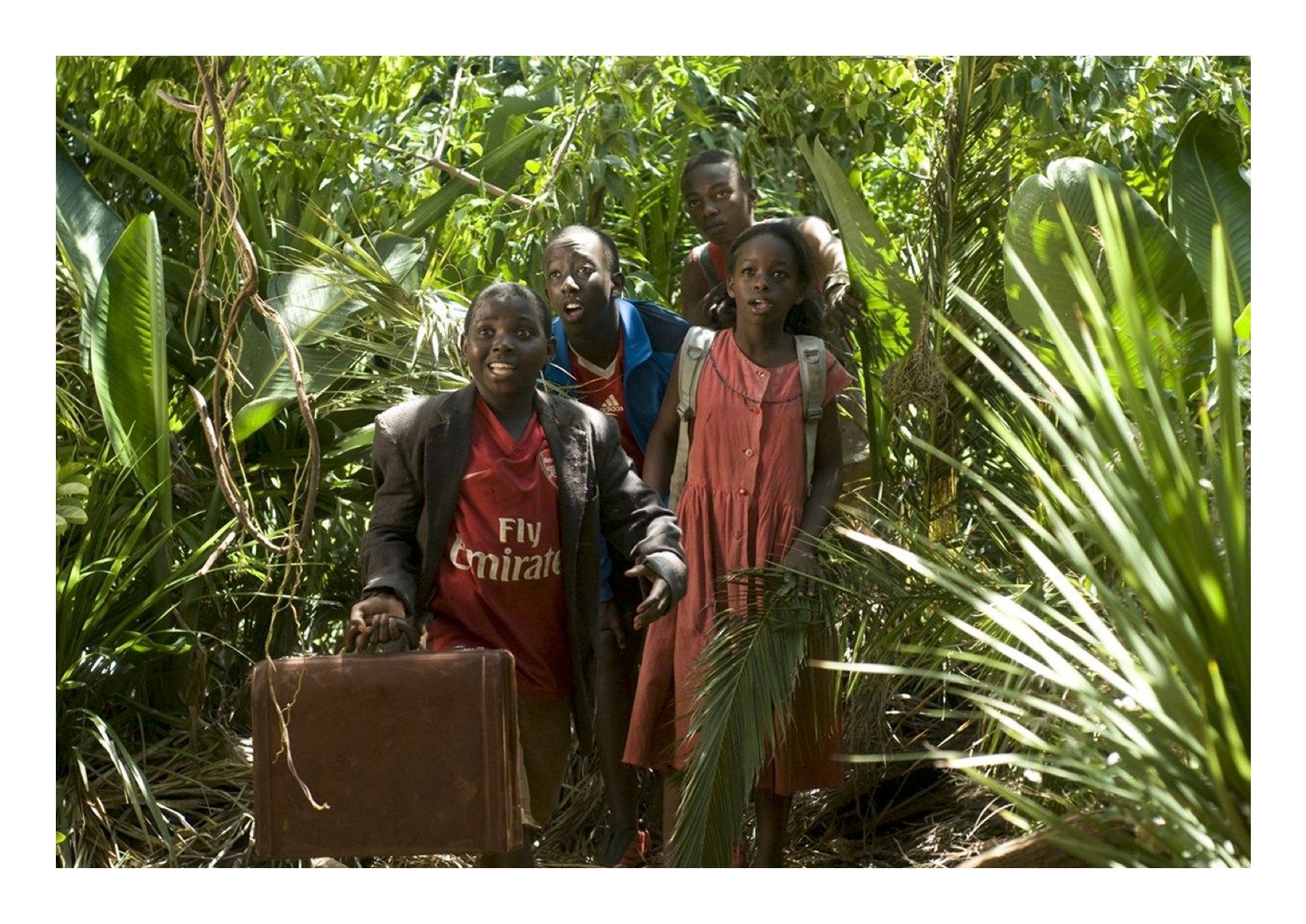- Film

The celebrated director tells us how an incident of systemic racial profiling inspired her to reframe the archetypal hero’s journey
Debs Patterson is a screenwriter and film director who has made serious waves in the film industry over the last decade. She exploded on to the international film scene in 2010 with her feature debut Africa United, which portrayed the coming-of-age of a group of young Rwandan boys who travel 3,000 miles to get to the South Africa World Cup, winning her a best debut BIFA nomination and flagging her as a BAFTA ‘Brit to Watch’. Since then her star has remained firmly in the ascendant, and she has worked on increasingly high profile productions, such as 50 Cent’s lauded serial For Life and the denouement to the celebrated costume drama Harlots, among many others. Here, she talks to Collective Culture about the genesis of her interest in film, and explains how witnessing racial profiling first-hand inspired her to set out on a career that sought to radically reframe narrative stereotypes.
What would you say first spurred your interest in film?
I remember watching the film Ghost when I was about 13 years old, and when it got to the end, I can distinctly remember thinking, ‘Oh, I would've done that differently–I would have killed them both.’ In a spoiler alert, you think Demi Moore’s character is dead for a moment, and then she's not, and I remember thinking, she should be dead, and the two protagonists should go into the afterlife together. That's the first time that I remember being aware of how somebody makes decisions about what happens in a film. The other film that had a massive effect on me very early on was the Sally Potter film Orlando, which jumps between multiple lines and identities. At the end of the film, I just remember my mind being absolutely blown by it being a girl's name that came up as the director. It was then that I was like, oh, girls can do that, game on.

Orlando is a film so many creative people cite as an influence–I think it had a profound cultural impact…
It definitely made me think about the way stories are told. I had never related so much to a protagonist before, and I became very interested in who is allowed to be in what role in society. An experience in real life that stayed with me, in that regard, is something that happened when I went to India to research my dissertation. It was the 90s and a Kashmiri business owner friend and I went to see American Beauty, which was just out. McDonald's had just opened in Delhi, all shiny and new, and after the movie we went around the corner for a burger. In the film, when the lead character hits rock bottom, he gets a job flipping burgers. But that day in Delhi there was a guard on the door and as a white tourist, without very much money, I was invited in, but my friend was barred from entry. He was far wealthier than me, a business owner, and was in his own country of residence, and yet he was deemed unworthy of going into McDonalds. That experience really made me realise the impact of the way stories are told, and how things get positioned. Needless to say, I stopped eating at McDonalds.
That desire to reposition the hero or overturn stereotypes seems to be at the heart of your early work, such as the short We Are All Rwandans and Africa United…
Exactly. If you're an East African kid portrayed in cinema, you never get to be anything other than the victim or the villain, right? You never get to be the hero. When I set out to make We Are All Rwandans I wanted to convey how inspirational those kids were. I mean, those kids, who had seen their their whole country torn apart by three years of genocide, refused to separate when rebels came into their school. Having seen everything that they'd seen, their answer to the rebels who were telling them to separate was that, ‘We are all Rwandans’–six children were killed by the rebels but 400 children survived because their classmates didn't betray them. The whole country named them national heroes. The film played incredibly well in festivals but when it played to a Rwandan audience in a stadium, you could kind of feel people going, oh, we’re still telling the genocide story–so the desire to create a positive upbeat story like Africa United came from there.
What do you think has been your greatest achievement?
I'm going to give you an honest answer. I've lived through two very difficult situations–one was a very nasty car crash, and one was a kind of a car crash of a divorce, and it sometimes feels like an achievement to have survived both. In the car accident, I had a near death experience. I was twenty-five years old, and when I thought I was going to go all of these things I thought would be a legacy flashed in front of me–exams, and certificates, and things that I thought would be my achievements, and they all just whizzed straight out of the way, like they just didn't matter at all. Then I had this sudden realisation that the only currency that was going to travel with me if I crossed over was love, and the only currency I was going to leave behind was love. That realisation about what we value as achievement changed my life, and the scary thing about the whole experience was the realisation that I didn't know that until it was nearly too late
Credits (Top To Bottom): Debs Patterson on the set of Africa United; still from Africa United